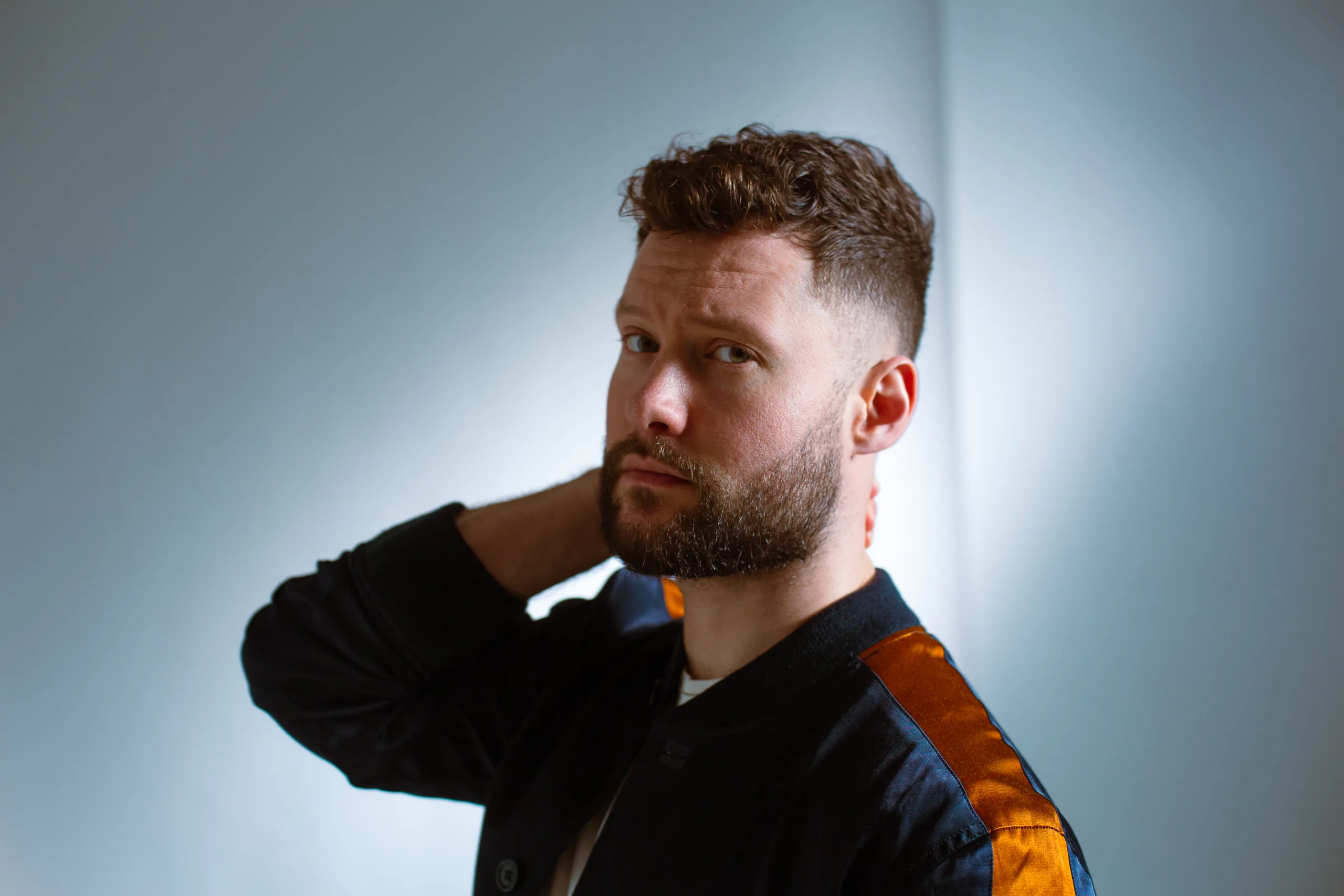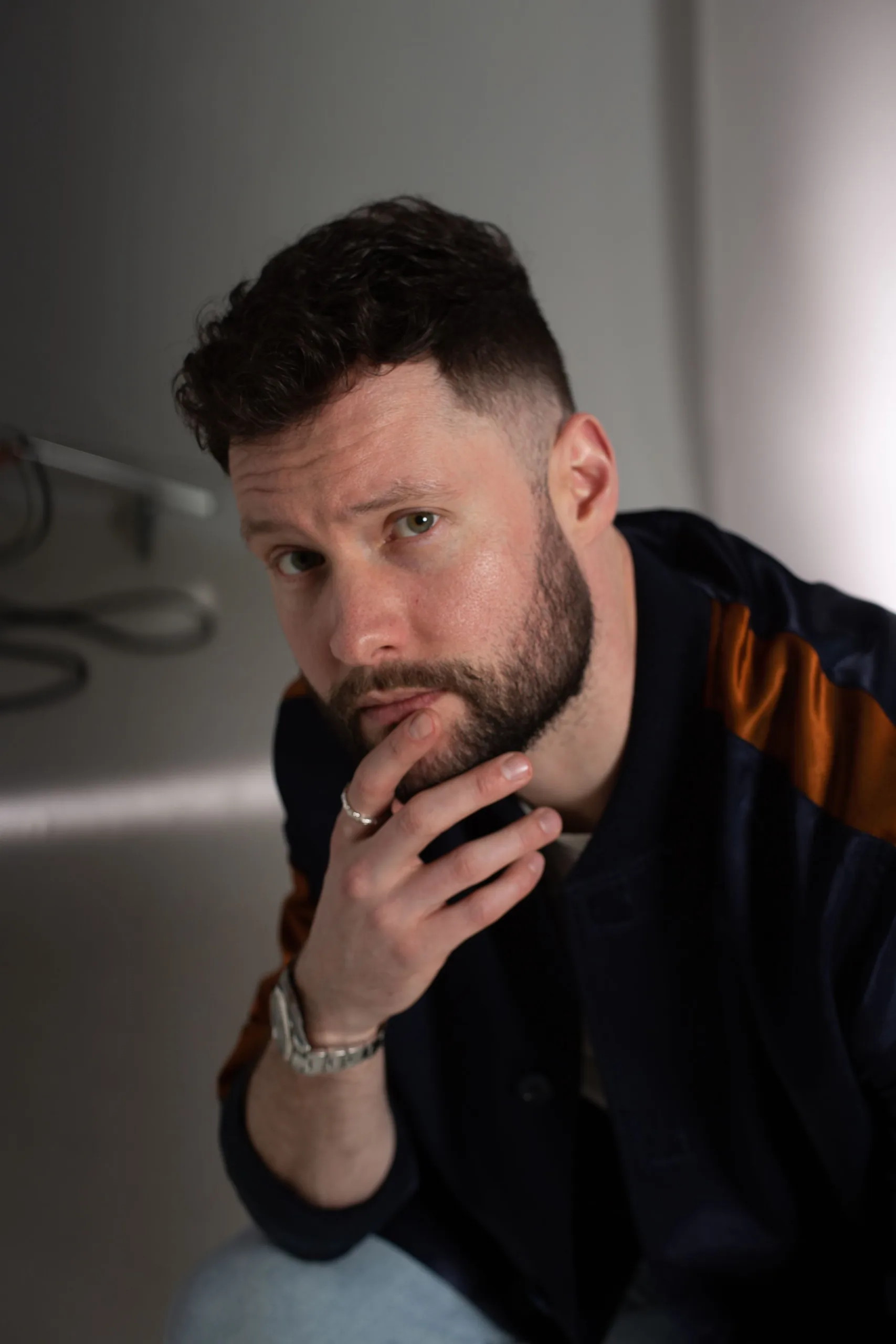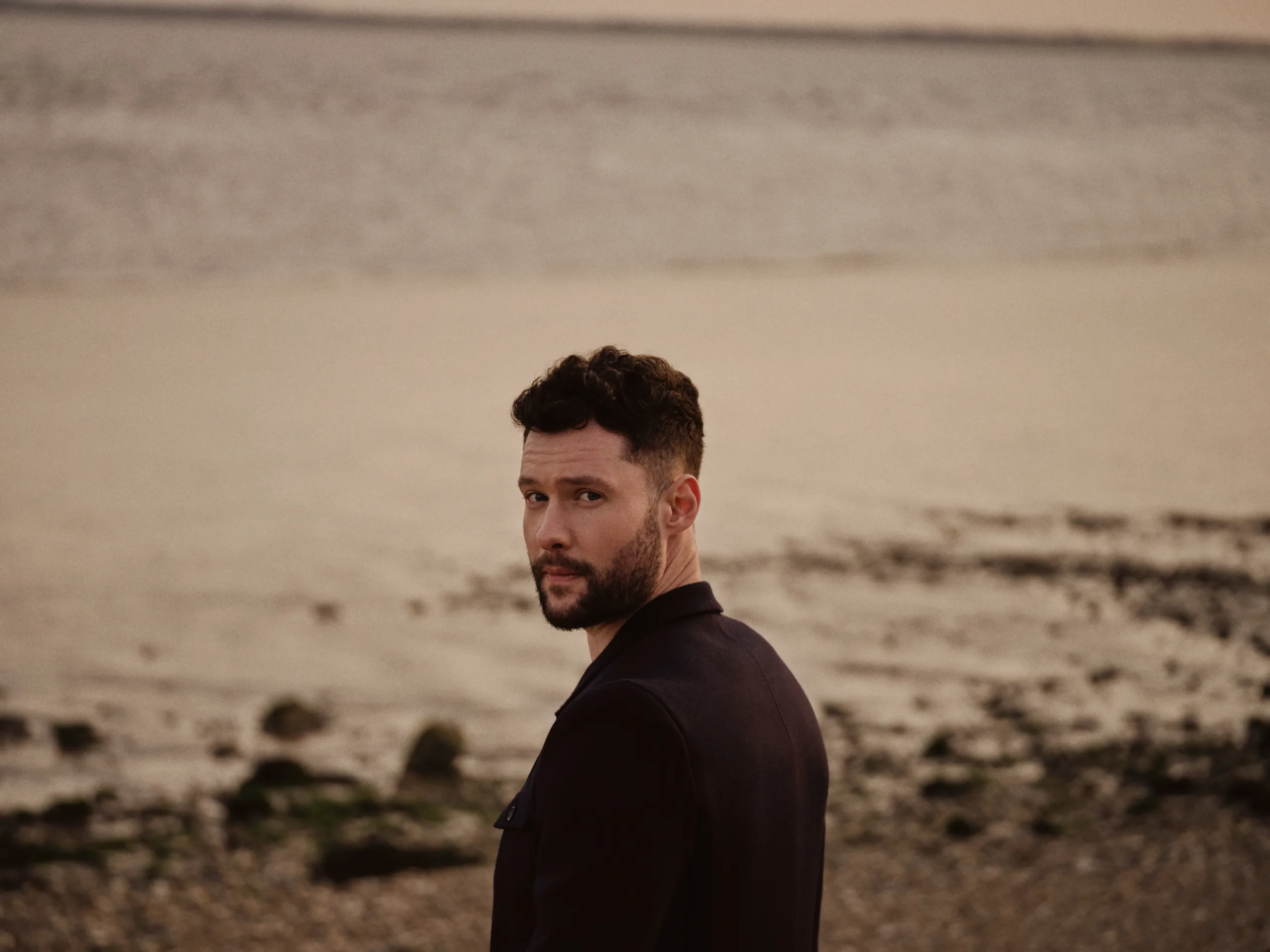Since his meteoric rise to fame back in 2015, Calum Scott – the multi-platinum-selling and BRIT-nominated singer-songwriter – has captured the hearts of millions worldwide with his soulful melodies and raw, emotional lyrics. But his path to musical stardom was anything but conventional.
From humble beginnings to topping the charts and headlining global tours, Calum Scott takes us on a journey through his remarkable career, sharing a glimpse into his early life and the unexpected turns that brought him centre-stage.
A northern boy’s rise to fame
Born and raised in Beverley in the East Riding of Yorkshire, Calum’s love for music was evident from a young age. Reminiscing about those early days in Northern England, the “Dancing On My Own” singer tells us his passion for performance began in the classroom. But like many aspiring artists, the musician’s career initially followed a more conventional path.
“I don’t know if it’s because I’m Northern or if many people have the same experience, but I didn’t necessarily ever think there could be [hope of] a ‘proper job’ in the Arts,” muses the singer-songwriter. “I never really considered doing music as a career, so I went into IT, got an apprenticeship, went to work at my local council and worked there for 8 years.”
But in the background, Calum’s passion for music continued to simmer beneath the surface. After watching his sister, the singer of the family, take the stage without fear something clicked for the singer-songwriter.
“There was always this bubbling passion for music,” he explains. “I was a drummer at school so I had a drum kit and was so keen to learn how to play instruments. We used to go watch my sister, the singer of the family, and I’d just be in awe of her. I couldn’t believe she was so brave to stand there and sing and be amazing at it. I used to try and emulate that in my room when nobody was in, recording myself doing covers of songs.”
One day, Calum’s sister walked in and overheard her brother belt out a song and immediately knew his voice needed to move from his at-home karaoke sessions to a real-life stage. So without his knowledge, she entered him into a local karaoke competition and brought him along under the guise of watching her sing.
“When the host asked me which song I’d chosen to sing I asked him what he was talking about,” laughs the “Dancing On My Own” singer. “He told me I was singing that night and I looked at my sister and she was grinning. I was so against doing it because it’s such a nerve-wracking thing to get up in front of an audience. Even to this day, I still feel those nerves putting my heart on my sleeve and singing to people.”
With his trust for his sister at the forefront of his mind, Calum overcame his nerves and took to the stage to perform Paolo Nutini’s “Last Request”. And judging by all the feats he’s achieved since, it’s safe to say the show was a knock-out.
From here, the then-aspiring-musician joined a cover band aptly named “Maroon 4”. It was during this stint of touring with the band that provided him with his first real taste of live performance. Having dipped his toe into the world of cover songs, Calum began posting covers on YouTube, and the rest is history.
“I put a cover of Robyn’s “Dancing On My Own” up on YouTube and it started getting attention,” recalls the artist. “Then in 2015, I found overnight success on a primetime TV show. I entered for my sister, trying to be the supportive big brother, but I’ve been on a high ever since.”
“At Your Worst” – a musical evolution
Fast forward to today and the talented artist has firmly established himself as a formidable talent in the music industry. Speaking of his latest single, “At Your Worst”, Calum tells us the track is the start of a new direction.
“I think it’s probably influenced by my recent collaborations with Jax Jones and Lost Frequencies,” he says of the track. “It’s more of a reshape. I’m a very emotional man and I like to write from the heart. And even though there’s a serious undertone to the song, it came to me so easily and without much thought at all.”
But the real motivation behind this song is a feeling most of us can relate to: regret.
“I’d just been on the phone to a friend and I was pretty infuriated by the whole situation,” he recalls. “I realised I was taking my anger out on the people close to me and I was feeling a bit guilty about it. I said to my team I was a bit difficult to love at times, and they all got their notepads out and we started to explore that feeling.”

After falling upon the melody, the artist found the lyrics came easily to him, telling us: “It started to become a self-care sort of song. It’s so important to love yourself in those ‘worst’ moments. I’m always keen to have a song which gives out a positive message. I wanted to get across the idea that self-love is really important, and to not punish myself for being a sensitive guy.”
Finding strength in support
Calum humbly credits much of his success to the unwavering support of his family and friends. His sister, in particular, played a pivotal role in pushing the artist to pursue his musical dreams.
“My sister [is] the one who pushed me, believed in me, and [is] my biggest champion,” says the singer-songwriter. “My family has always been super supportive, my mum especially. My mum hears all my demos before the label does!”
But it’s not just the support of family that has bolstered Calum’s ascent to stardom. Influential figures like Simon Cowell and his manager have likewise played instrumental roles in shaping his path. They shared his vision, believed in his talent, and provided pivotal opportunities that would allow the artist to turn his dreams into reality.
That said, like any budding artist, Calum tells us journey has been marked by numerous setbacks and rejection: “I didn’t get a record deal immediately. It’s easy for people to think my career was a breeze. It’s easy for people to look at my career now and think it must have been a breeze. I got lots of ‘no’s’ and it was hard to deal with that rejection.
Rather than dwell on any knockbacks that came his way, Calum chooses to view setbacks as opportunities for growth. “It ultimately made me stronger and more determined,” he tells Student Pages. “I welcome people saying ‘no’ now, because it’s only going to make me want something more.”
Of course, working in the music industry, with its relentless pace and scrutiny, is not without its challenges. Speaking candidly of the anxiety, stress, and self-doubt that often underscore his career, Calum shares his candid experience of living in the limelight.
“This business is full of worry, anxiety, panic, and stress,” he shares. “I really do care about my music. [With that] there’s a lot of stress, lots of self-doubt and anxiety. The nerves I get around a live performance are off-the-scale because I want to give people the best performance I possibly can.”
“You give your heart to people every night and hope that it’s [well-received] but it’s open to be criticised.
On one particular occasion, the “You Are The Reason” singer found himself in a real emotional whiplash situation after performing at Capital’s Jingle Bell Ball.
“I went from being on stage singing “Dancing On My Own” to 40,000 people, to being alone in my hotel room in thirty minutes. Going from that absolute euphoria to being completely alone is hard. It seemed ridiculous to be feeling that way and I felt guilt explaining it to my friends, but the way I deal with those things is by talking about it, being open, and honest. I didn’t want to seem ungrateful, but you need to talk about anxiety, stress and worry to help lighten the load.”
To cope with the pressures, Calum emphasises the importance of exploring your feelings: “I use my music as therapy. Getting how I feel down on paper helps, translating the pain into something beautiful.”
The power of virtual community
Having since amassed a billion streams on his viral hit, Calum Scott knows all too well the power of garnering an online community. Speaking of the importance of social media when crafting a career in the arts, the artist tells us it’s an integral part of the process.
“It’s pivotal in getting your music heard far and wide,” he tells us. “The virality of my [X Factor] audition has meant my voice has been heard farther and wider than I could ever imagine.”
“That’s the power of people sharing it. All TikToks, reels and other short form content around at the moment need a soundtrack. Music has been enhanced by that. There’s new talent being discovered every day.”
That said, the artist isn’t ignorant to the pitfalls of spending too much time online.
“It can be a detriment though,” he warns. “We get everything so instantaneously now. Gone are the days where you had to stand outside HMV and queue to hear new music. I miss that!”
Calum’s journey from IT desk to centre-stage is a testament to the power of passion, perseverance, and self-belief. His music continues to inspire listeners around the world – and it won’t be too long until you’ll have the chance to see that dedication in person as he prepares for a one-off show, The Songbook So Far, at the Eventim Apollo in 2024.
But you don’t have to wait until then to tap into his raw lyrics and catching melodies. His latest release, “At Your Worst”, is one of the beloved artist’s most up-tempo and high-energy tracks to date, and it’s available on all streaming platforms now.
















